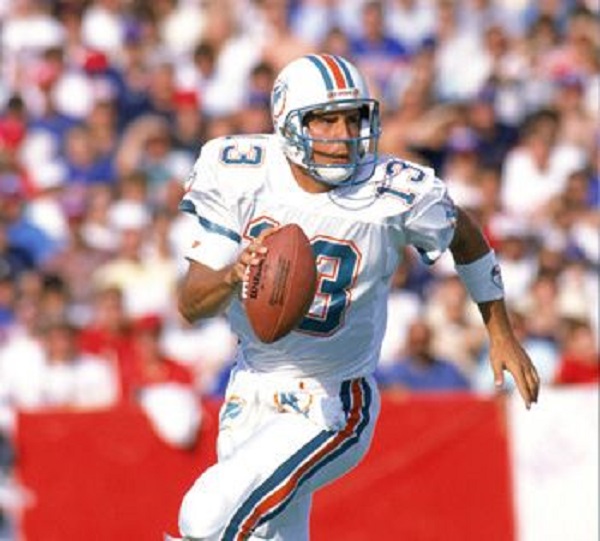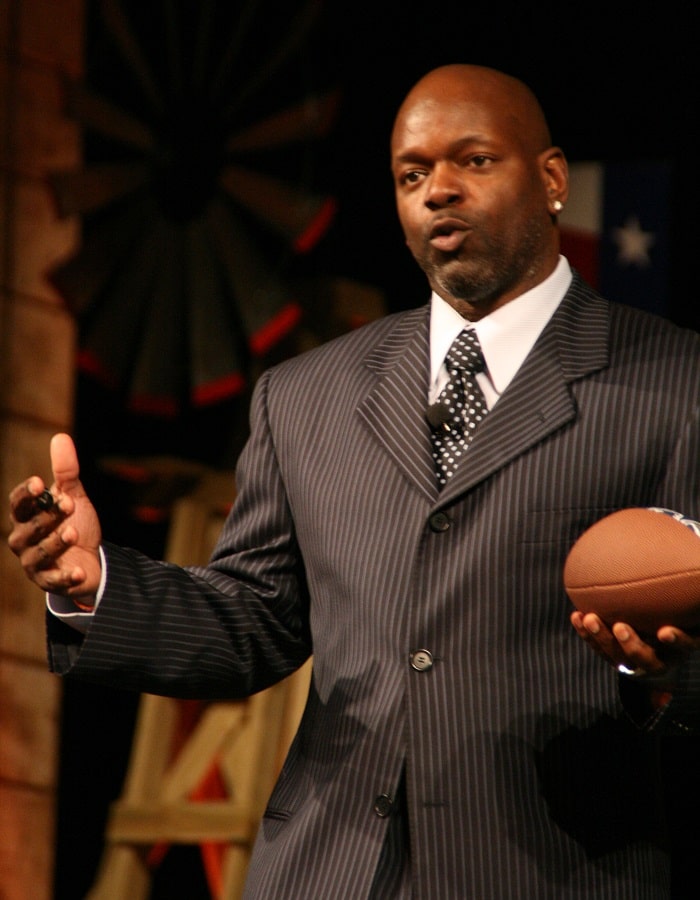Daniel Constantine Marino Jr., who entered the world on the 15th of September, 1961, was raised in Pittsburgh, Pennsylvania, in a supportive Italian-American household. From his early childhood, it was clear that Marino had a gift for athletics. As a student at Central Catholic High School, he didn’t just excel on the football field but also gained recognition as a promising baseball player. Although the Kansas City Royals offered him a career in baseball by drafting him, Marino decided that his true calling was football, and opted to invest his energy and talent in the sport he loved the most.
College Days at Pitt :
Marino accepted a scholarship to play at the University of Pittsburgh, often simply referred to as Pitt. During his four seasons (1979-1982) at Pitt, he became a household name in collegiate football. Marino was a standout from the get-go, showing early signs of the talent that would make him a legend. His college career wasn’t just a linear trajectory of success, though. Marino faced criticism and ups and downs, particularly in his senior year when his performance dipped. Despite this, he ended his college career with 79 touchdown passes and almost 8,600 yards, setting multiple school records.

The NFL Draft and Early Career :
The 1983 NFL Draft was perhaps one of the most quarterback-rich drafts in history, featuring future Hall of Famers like John Elway and Jim Kelly. Marino was the sixth quarterback picked in the first round, going 27th overall to the Miami Dolphins. The late draft pick did not deter him; rather, it seemed to fuel his motivation to prove himself.
His rookie year was a sign of great things to come. Marino threw for 20 touchdowns and recorded 2,210 passing yards, an unprecedented achievement for a rookie at that time. He was named NFL Rookie of the Year, and it was clear that Miami had found its franchise quarterback.
The Record-Breaking Seasons :
Marino’s second season (1984) was one for the record books. He shattered existing NFL records by passing for 5,084 yards and throwing 48 touchdown passes. These were astonishing numbers, especially in an era when the league was not as pass-heavy as it is today. That year, Marino led the Dolphins to Super Bowl XIX, but they fell to the San Francisco 49ers. This turned out to be Marino’s only appearance in a Super Bowl, a fact that often unfairly overshadows his incredible career achievements.
The Marino Effect :
It’s hard to talk about Marino without mentioning his incredible arm strength, precision, and quick release. He had a sixth sense for reading defensive schemes and could dissect a defense like few others could. Moreover, Marino was instrumental in elevating the careers of his teammates. Receivers like Mark Clayton and Mark Duper became stars in their own right, thanks to Marino’s extraordinary ability to distribute the ball accurately.
His playing style also influenced the way the quarterback position is played and how offenses are built. Marino was one of the first to make extensive use of the shotgun formation, and his quick-release passing changed the dynamics of quarterback protection and offensive strategy
Later Years and Stepping Away from the Game :
Dan Marino’s 17-year-long career was almost entirely with the Miami Dolphins, an uncommon show of loyalty in a time when players frequently transferred for more lucrative deals. By the time he decided to hang up his cleats, he had set multiple records such as most passing yards in a career (61,361), most completed passes (4,967), and most touchdown passes (420). Although these records have been broken over time, they were groundbreaking achievements when Marino set them.
Choosing to retire on March 13, 2000, Marino’s impact on the sport went beyond mere statistics.
The Legacy Lives On :
Despite not winning a Super Bowl, Marino’s legacy is solidified by his unrelenting passion for the game and his innate ability to inspire those around him. He continues to be involved in football through various media roles and philanthropic efforts, including the Dan Marino Foundation, which has been instrumental in supporting children with autism and other developmental disorders.
Conclusion :
Dan Marino is more than just a collection of statistics or a name in the Hall of Fame. He is a testament to what one can achieve through hard work, dedication, and a genuine love for the game. While he may not have a Super Bowl ring to his name, Marino’s impact on the sport is far-reaching, affecting the way quarterbacks play today and inspiring countless young athletes to reach for the stars.
As fans, analysts, and players look back, Marino’s legend continues to grow, solidifying his status not merely as a great quarterback but as an icon of American sports history. And that, perhaps, is the greatest tribute to the man, the myth, the legend that is Dan Marino.


![Ed Budde Credit Chiefs[dot]com](https://sportswiki.net/wp-content/uploads/2023/10/Ed-Budde.jpg)
![Ode Burrell Credit hailstate[dot]com](https://sportswiki.net/wp-content/uploads/2023/10/Ode-Burrell.jpg)
👍🏻👍🏻👍🏻👍🏻